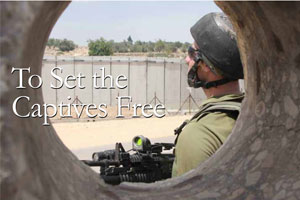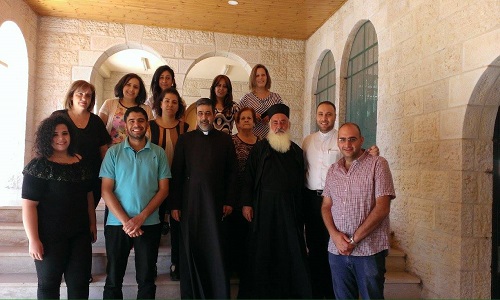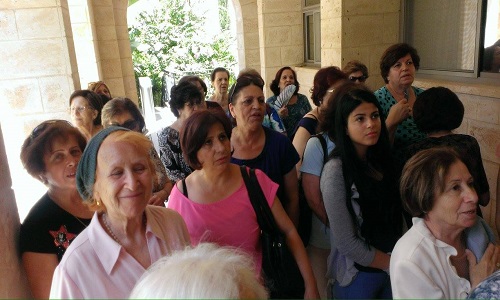
Bishop Edmond Browning’s Funeral
Trinity Cathedral
Portland, OR
July 19, 2016
On behalf of SabeeI and Friends of Sabeel I would like to express my deepest condolences and sincere sympathies to Patti Browning and to all the Browning family. We share your grief. We also loved Bishop Browning; and we give thanks to God for his life and witness.
It is a great honor and privilege to be asked to take part in this funeral service for a person I loved, admired, and respected greatly.
Bishop Browning was the President of Friends of Sabeel North American from its inception in 1966 until he became president emeritus in 2012. He and Patti visited us in Jerusalem a number of times. They were both dedicated to the quest for a just peace in Palestine-Israel. In one of our international conferences, Bishop Browning was the keynote speaker in Jerusalem. He and Patti were true friends and staunch supporters of Sabeel’s ministry.
When I think of Bishop Browning, two words come to mind:
The first is HUMILITY: During my high school days in Nazareth, we had to memorize the poem “If” by Rudyard Kipling. One of its stanzas reads, “If you can talk with crowds and keep your virtue, or walk with kings …nor lose the common touch.” These words, I believe fit well Bishop Browning. During his time as presiding bishop, he met with presidents and world leaders and he had a good collection of photos with them. On a visit to their home in Hood River, I expected to see those pictures displayed in the living room. To my surprise they were relegated to a lesser visible place in the house. This is the kind of person Bishop Browning was. He walked with kings and presidents but did not lose the common touch. He was reachable, approachable, and accessible. “God gives grace to the humble.”
The second is COURAGE: Bishop Browning had a soft voice but a big heart and a great courage. In the Gospels, Jesus criticized religious leaders for having eyes but could not see. Bishop Browning’s eyes could see. He saw the agony of the victims of injustice. When he visited Palestine, he felt with the Palestinians who were living under the oppressive Israeli occupation of their country. Like Bishop Desmond Tutu who also visited us, he could see and feel the injustice and oppression. In 2003, with the help of Bishop Browning, we were able to invite Bishop Tutu to become the international patron of Sabeel. And he continues in this role to this day. Bishop Browning took a courageous stand for justice for the Palestinians. Even when it was not fashionable, he stood on the side of the marginalized. For Bishop Browning, there were no outcasts. His stance reflected the spirit of love and compassion for the victims of discrimination.
As we pay our respect for this dear friend and brother, I believe he still has a pertinent message for us all: “Don’t forget the victims of discrimination and racism in your communities. Work for their liberation.” And I would like to think that he has a special word to the leadership of our Episcopal Church, bishops, clergy, and lay: “Don’t forget the Palestinians. They too are God’s children. Champion their just cause, and work for their liberation so that they and their Israeli neighbors may live in security and peace.”
Canon Naim Ateek
Chair of Sabeel Board









